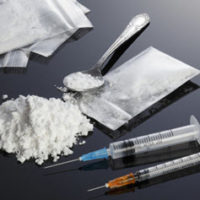Florida Supreme Court Asked to Review Case Involving Synthetic Marijuana Manufacturer Assigned Partial Fault for Homicide

In late August, family members of three people who were killed in an accident by a driver who was allegedly high on synthetic marijuana (known as “spice”) and was speeding, asked that the Florida Supreme Court review an appeal of a case that could have significant consequences for criminal defendants who end up committing certain acts while under the influence of alcohol, drugs, or other intoxicating substances. While the driver defendant (Generoso) was already convicted of vehicular homicide, in the civil lawsuit brought against both defendant Generoso and the manufacturer of the synthetic marijuana (DZE Corp.) by the families of the victims, a Leon County jury then found that Generoso was only 35 percent at fault, while DZE Corp. was 65 percent at fault for the deaths; a decision that makes a broad statement about apportionment of fault between manufacturers who make products that can cause consumers to engage in acts that result in criminal activity.
The 1st District Court of Appeal’s Decision
However, the 1st District Court of Appeal reversed, finding that DZE Corp. should not be held liable and ruling that Generoso’s criminal conduct was “the sole proximate cause” of the deaths under Florida state law, which dictates that anyone who sells or furnishes alcohol (i.e. an intoxicating substance) to someone of lawful age cannot become liable for injury or damage resulting from the intoxication of that person unless they knowingly serve someone who is habitually addicted. The court found that the issue is a matter of law versus fact because, while the question of proximate cause is generally left to the fact-finder (or jury), the judge may address the matter where the facts are unequivocal, such as where the evidence supports no more than a single inference. Here, the court explained, there can be no fault assigned to a third party where another party voluntarily consumed the product to become intoxicated and made the illegal decision to drive. The court specifically explained that, as a matter of law, Generoso’s conduct was the “sole superseding proximate cause of the accident,” and, as a result, “the trial court erred in allowing the jury to decide otherwise.”
Investigation Finds Synthetic Marijuana Sold as CBD in Florida
Yet, what courts may not realize, but those representing defendants in circumstances like these should provide as evidence, is that synthetic marijuana is being snuck into CBD that is sold here in Florida, with devastating, dangerous consequences. Some operators are substituting these cheap, illegal chemicals for natural CBD in edibles and vapes in order to turn a quick profit, sending a number of consumers to emergency rooms, all while those behind these synthetic products operate with impunity because regulators cannot keep up with these constantly evolving practices. According to investigations, 10 out of the 30 CBD products that they tested contained “spice” or other synthetic marijuana products, while others did not contain any CBD whatsoever.
If You Are Facing Criminal Charges in Florida, Work with an Experienced Defense Attorney
If you have been charged with a crime in Florida, it is essential that you consult with an experienced West Palm Beach criminal attorney right away. As a former prosecutor with the state attorney’s office, and more than three decades of experience, I have the experience necessary to provide you with the advantages you need to aggressively fight any criminal charges you are facing. Contact the office of William Wallshein, P.A. today to schedule a free consultation and find out more.
Resource:
miami.cbslocal.com/2020/08/29/synthetic-marijuana-case-goes-to-florida-supreme-court/
wptv.com/news/state/associated-press-investigation-finds-synthetic-marijuana-in-cbd-sold-in-florida
